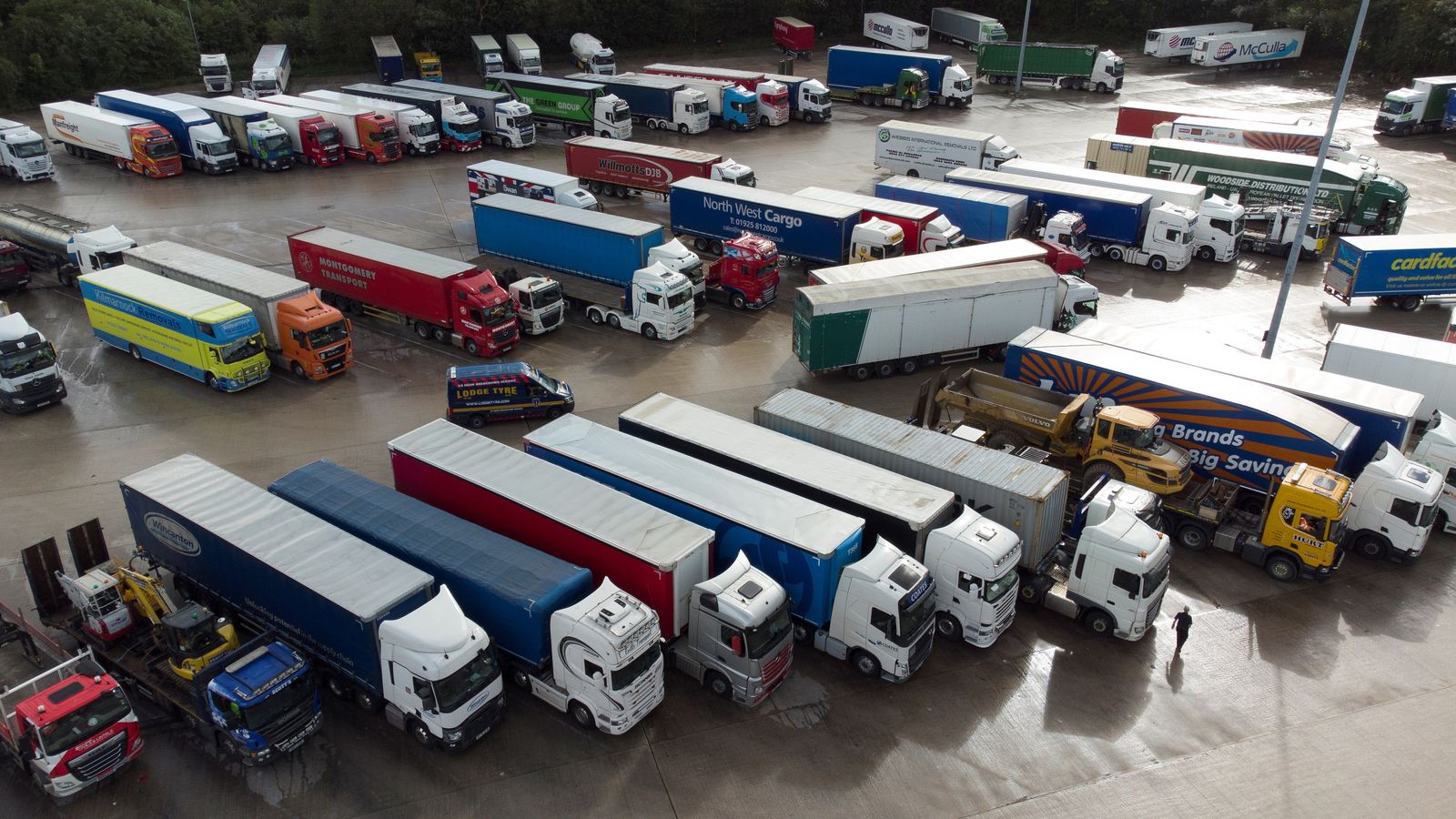Haulage industry bosses have told MPs that the shortage of lorry drivers and resulting crisis in the supply chain is not improving despite measures introduced by the government to try and alleviate the problems.
Duncan Buchanan, director of policy at the Road Haulage Association, also strongly criticised the recently-announced 5,000 three-month visas for foreign drivers saying “if you were designing a visa system to fail, you would design it something like this”.
He forecasted that the problems being experienced could last a year.
His warning came alongside others from recruitment and food services industry bosses appearing before the business, energy and industrial strategy select committee.
All three pointed to structural problems in the labour market which have contributed to the crisis.
The Office for National Statistics published figures on Tuesday which show that driver numbers have fallen by 53,000 over the past four years.
Nearly 50% of importing businesses have experienced changes in transportation costs as a result.
Net zero strategy: Government plans will ‘support up to 440,000 jobs’, minister says – as plans to end sale of new petrol and diesel cars revealed
PM’s charm offensive yet to convince investors to part with their trillions
Heathrow passengers could see airport charges rise by 50% next year
Mr Buchanan told the select committee that “things are very challenged at the moment”.
“Things are not visibly getting better at this stage, and I know there are a number of measures that have been put in place, stepping up training, stepping tests, but on the ground that isn’t having much of an effect,” he added.
Please use Chrome browser for a more accessible video player
The government has introduced a variety of measures to try and alleviate the problem including 5,000 three-month visas for non-UK drivers and training for 4,000 more British workers to become HGV drivers.
Mr Buchanan was particularly critical of the visa proposal saying a year would be more attractive to foreign workers.
“People aren’t sitting around doing nothing, waiting for visas to come up to go to a different country, work for three months, disrupt their lives, get stuck in the UK over Christmas” he said.
Last week, plans were announced for a change to cabotage rules which govern how many deliveries foreign drivers can make in the UK within one trip.
It will mean they are allowed to make unlimited journeys within two weeks of arriving.
Mr Buchanan said this would have “zero impact” on alleviating the crisis and would serve to undermine the improving wages and conditions of British drivers.
He added however that people should not panic as most of these pressures were being felt by businesses and not being passed on to consumers.
These sentiments were echoed by the head of the Food and Drink Federation.
Ian Wright said that while there is no shortage of food there have been problems with getting some products to the shelves.
He also warned that fixing these issues could take time.
“If I said it was going to go on forever, that would be ridiculous, but these issues are structural,” he said, adding that “if it is structural it will go on for quite a long time.”
He also said that he was particularly concerned with inflation and the fact that labour shortages could continue to push prices up.
“In hospitality, inflation is running between 14% and 18%, which is terrifying,” Mr Wright said.
Neil Carberry, chief executive of the Recruitment and Employment Confederation added that labour shortages in the UK are “uniquely sharp” compared with other countries and suggested that “snobbery” in policy-making has contributed.
He suggested that visa policy should be more focused on the workers that are needed, such as in haulage.
Downing Street said the supply chain crisis was discussed in Cabinet on Tuesday morning.
The prime minister reiterated that supply chain pressures are being experienced globally as the world emerges from the pandemic and that the UK is transitioning to a high wage, high productivity economy.






















